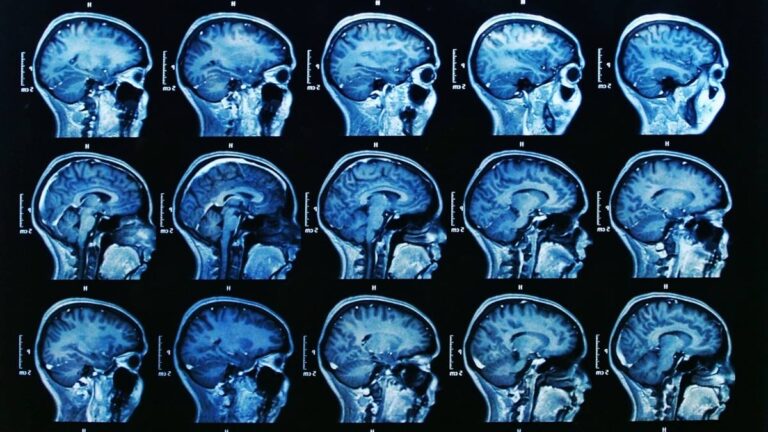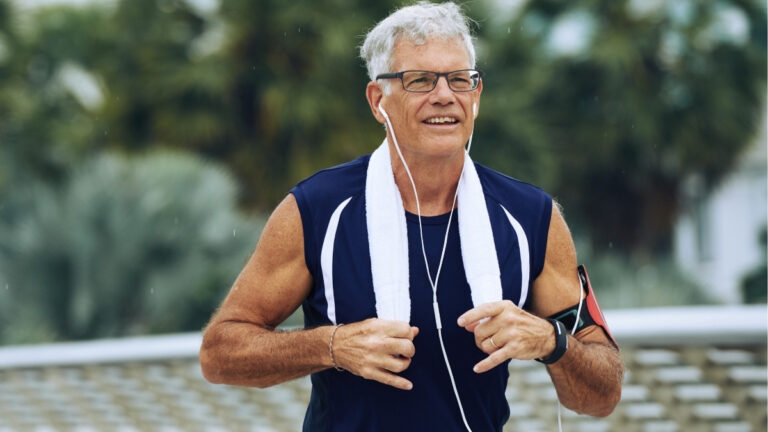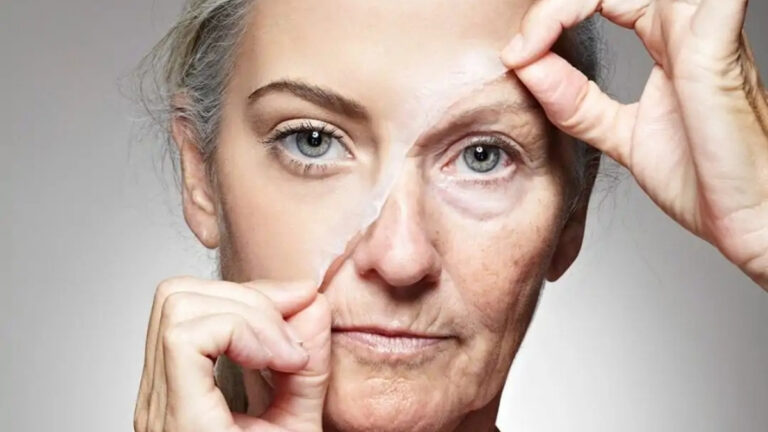The Viral ‘Stay Young’ Tricks Everyone Is Trying — Here’s What Science Says
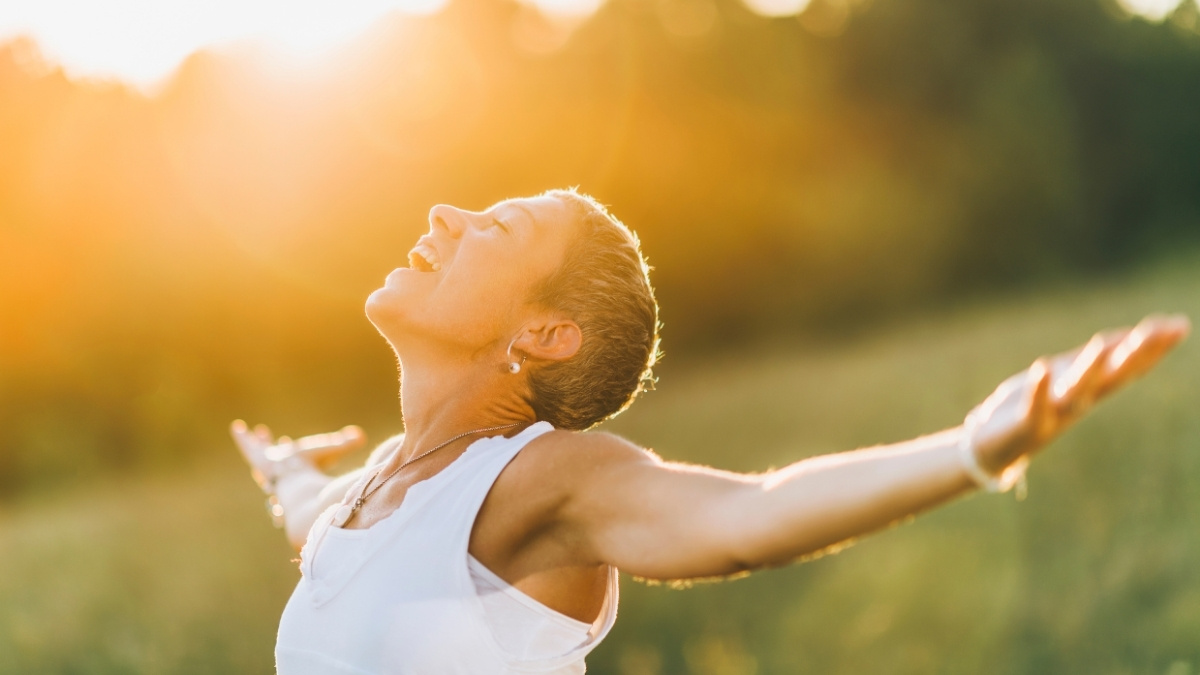
From TikTok face yoga tutorials to celebrity ice bath confessions, the internet is full of ‘stay young’ tricks—but which ones actually work? You scroll through social media and see influencers and neighbors trying viral anti-aging habits.
Some swear cold plunges changed their lives, while others claim facial exercises are the secret. It’s confusing, and you don’t know what’s backed by real science versus just hype.
Here’s what matters: Science shows the basics—exercise, diet, quality sleep, and social connection—are the true foundation of aging well. According to a U.S. News survey of 53 health experts, nearly half prioritize physical activity for longevity.

This article cuts through the noise with viral longevity tips that actually work in 2025. You’ll learn how to safely implement these anti-aging habits, what results to expect, and which tricks support a youthful appearance naturally.
🧠 Science-Backed Habits That Add Years to Life
Study of 700,000 U.S. veterans reveals 8 powerful longevity habits.
💪 Exercise
Boosts heart, lung & muscle health. Reduces death risk by 45%.
😴 Sleep
7–8 hours of deep rest helps repair cells and extend lifespan.
🍎 Healthy Diet
Mediterranean-style diet lowers age-related disease risk by 30%.
🚭 No Smoking
Smoking increases death risk by up to 45% — quitting matters most.
🤝 Social Ties
Strong connections boost happiness & longevity significantly.
🧘 Stress Control
Managing stress improves both lifespan & healthspan quality.
🚫 Opioids
Avoiding misuse reduces mortality risk by 30%.
🍷 Moderate Alcohol
Avoid binge drinking to support heart and liver health.
The Science Behind ‘Stay Young’ Tricks That Actually Work
You’ve seen the videos. Ice baths. Face yoga. Weird supplements. Everyone claims they’ve found the secret to staying young. But what does real science say?

Here’s the truth: A massive study of over 700,000 U.S. veterans found that men who adopted eight healthy habits by age 40 lived 24 years longer than men who had none. Not months. Not a few years. Two entire decades.
The eight habits aren’t complicated. They’re things you already know matter. Exercise. Good sleep. Healthy eating. Not smoking. Managing stress. No binge drinking. Staying away from opioids. Keeping social connections strong.
The biggest killers? Low physical activity, smoking, and opioid use increased death risk by 30-45%. Stress, binge drinking, poor diet, and bad sleep each raised it by about 20%.
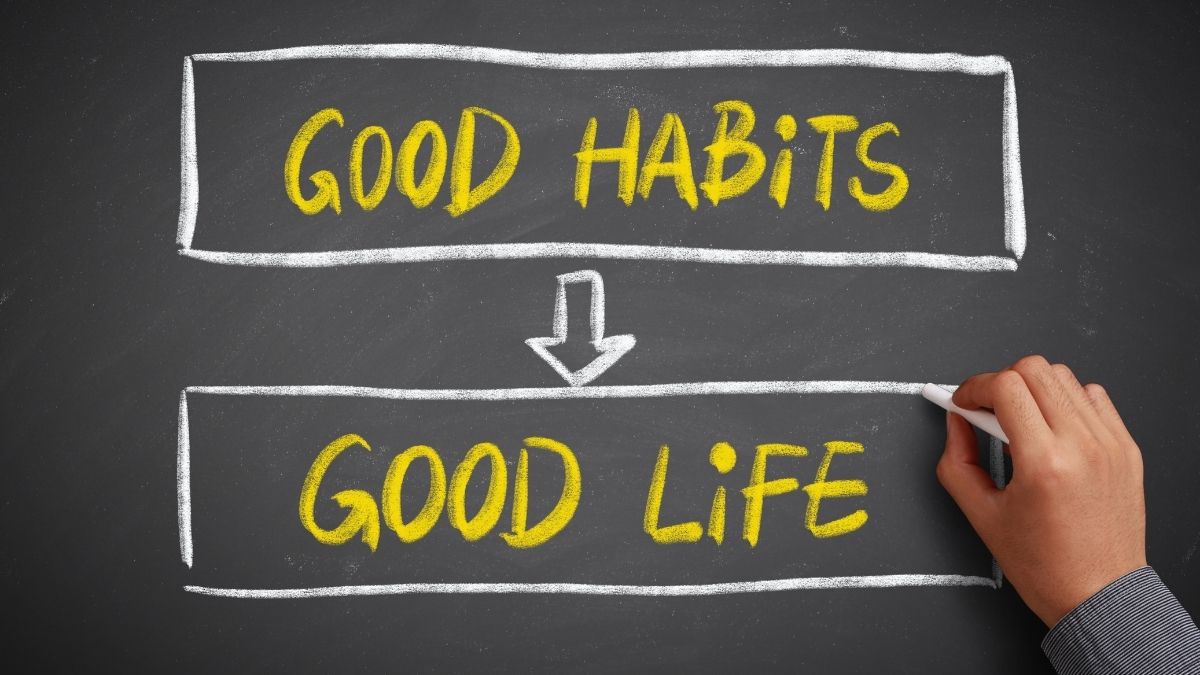
Here’s what confuses people: Social media makes everything look like a miracle cure. The #faceyoga hashtag alone has 2.7 billion views. But views don’t equal science.
Physical activity works because it strengthens your heart, lungs, and blood vessels. It builds muscle. It improves balance. It keeps your weight healthy. These aren’t theories. They’re proven benefits that add years to your life.
The key difference? Lifespan is how long you live. Healthspan is how long you live WITHOUT disease. Most anti-aging habits aim for healthspan. You want those extra years to feel good, not just exist.
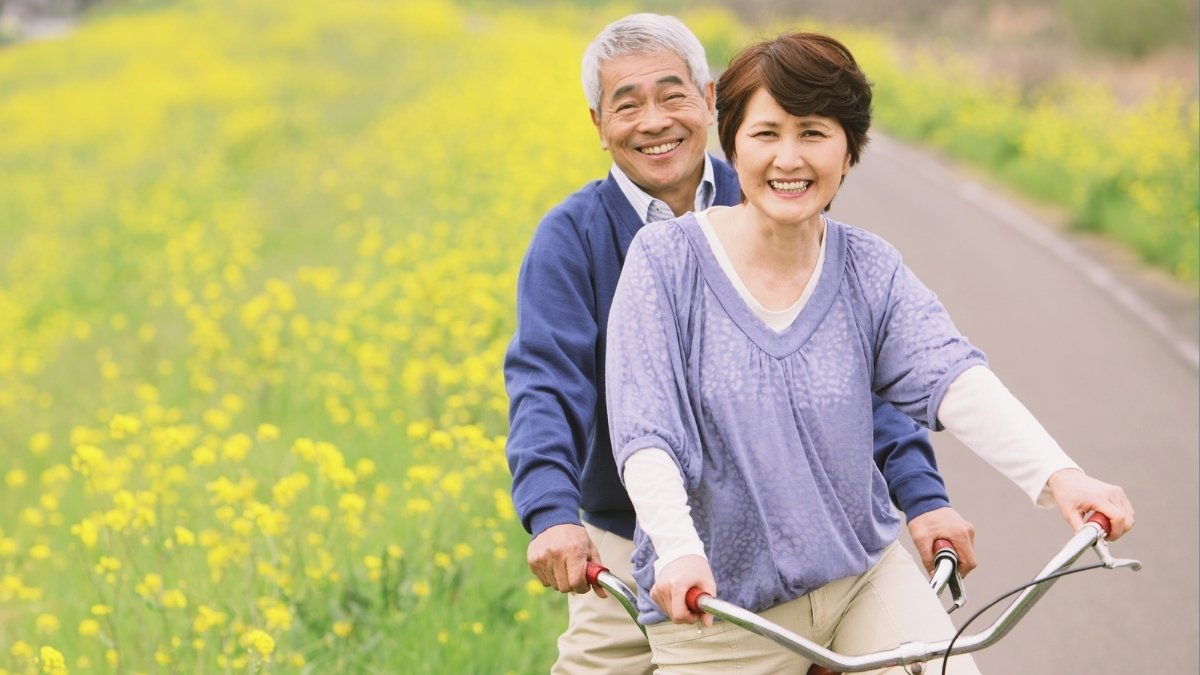
Modern longevity isn’t about finding one magic trick. It’s about stacking proven habits that work together. No shortcuts. No secret formulas. Just consistent, science-backed choices that compound over time.
The Mediterranean Diet: Why It’s Still the Gold Standard in 2025
Want to stay healthy as you age? The Mediterranean diet may be your easiest solution. A 2025 study in Nature followed 105,000 people for 30 years. Only 9% reached 70 without age-related diseases—but most of them ate a diet low in red meat and high in fruits, vegetables, legumes, and whole grains.
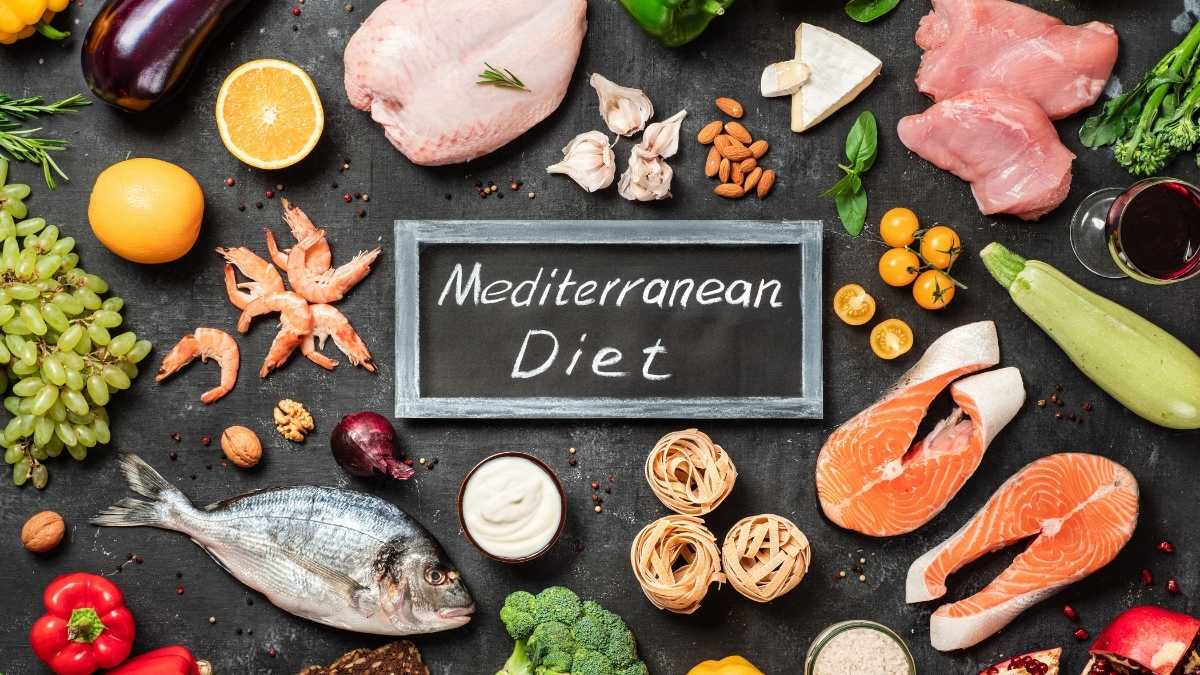
What’s actually on the Mediterranean plate? Think olive oil, leafy greens, beans, whole grains, nuts, fish, and limited cheese. Italian longevity expert Valter Longo suggests skipping red and white meat from ages 20-70, eating just 2–3 eggs per week, and keeping most animal products to a minimum.
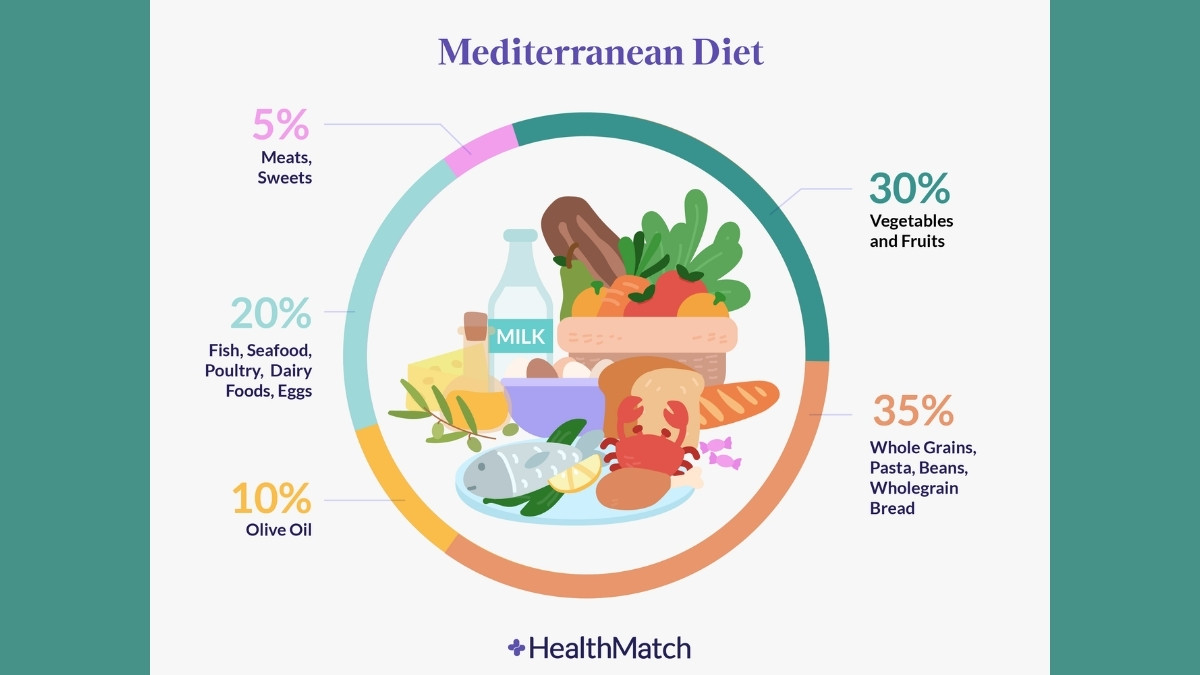
Dr. Eric Topol, a top cardiologist, loves this diet because it’s flexible. He snacks on nuts and enjoys many plant-based meals.
How to start today: Swap red meat for beans or lentils, use whole grains instead of white rice, and add a handful of nuts for snacks. Meal-plan with simple Mediterranean templates: breakfast with fruit and yogurt, lunch with salad and chickpeas, dinner with fish or legumes.
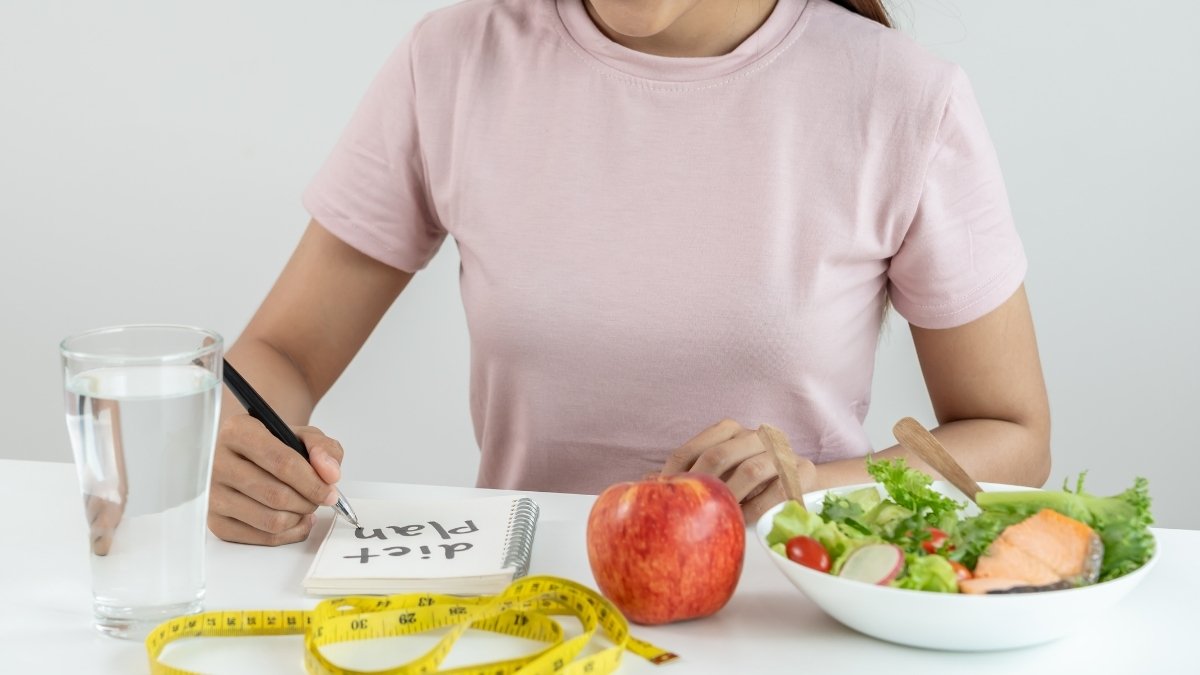
Why it beats trendy diets: It’s proven, simple, and doesn’t demand cutting whole food groups. Focus on anti-aging foods that fit your lifestyle and help you live longer while enjoying your meals.
Cold Plunges: The Viral Trend With Real Cellular Benefits

Want to boost your mood, sleep, and even help your cells fight stress? Cold plunges might help. University of Ottawa research found just seven days of cold water immersion improves cellular resilience and autophagy, helping cells manage stress better.
A systematic review also found cold plunges may reduce sick days, improve sleep, and lower stress. Chris Hemsworth jokes, “when you’re in here, you feel like you’re dying, and when you get out, you feel alive again.”
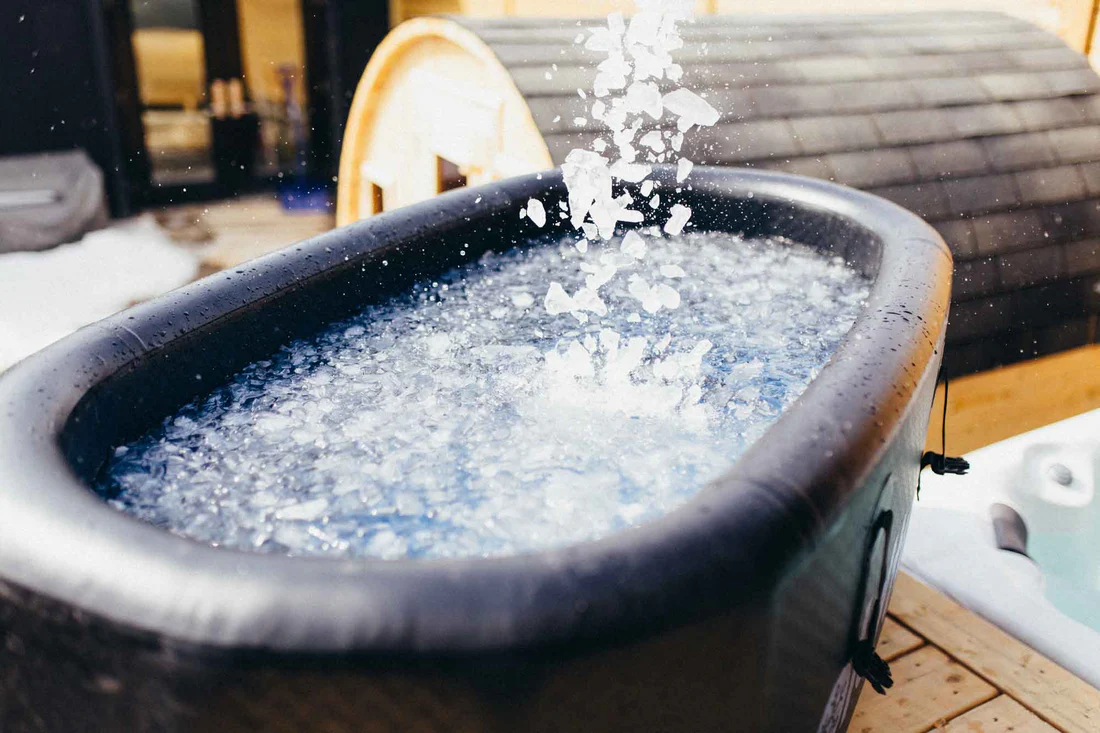
How to start safely: Begin at about 68°F (20°C) for a few minutes. Gradually lower the temperature over time. You can try a bathtub method at home if you don’t have a plunge pool.
When to avoid: Skip cold plunges if you have heart conditions or other serious health issues.
Cold plunge benefits include better sleep, reduced stress, and cellular anti-aging effects—making it a simple, evidence-backed ice bath longevity habit.
Exercise: The Non-Negotiable ‘Stay Young’ Trick
Want to live longer and stay strong? Exercise is the single most reliable tool. Longevity experts recommend splitting workouts 50/50: three days of strength training and three days of cardio each week.
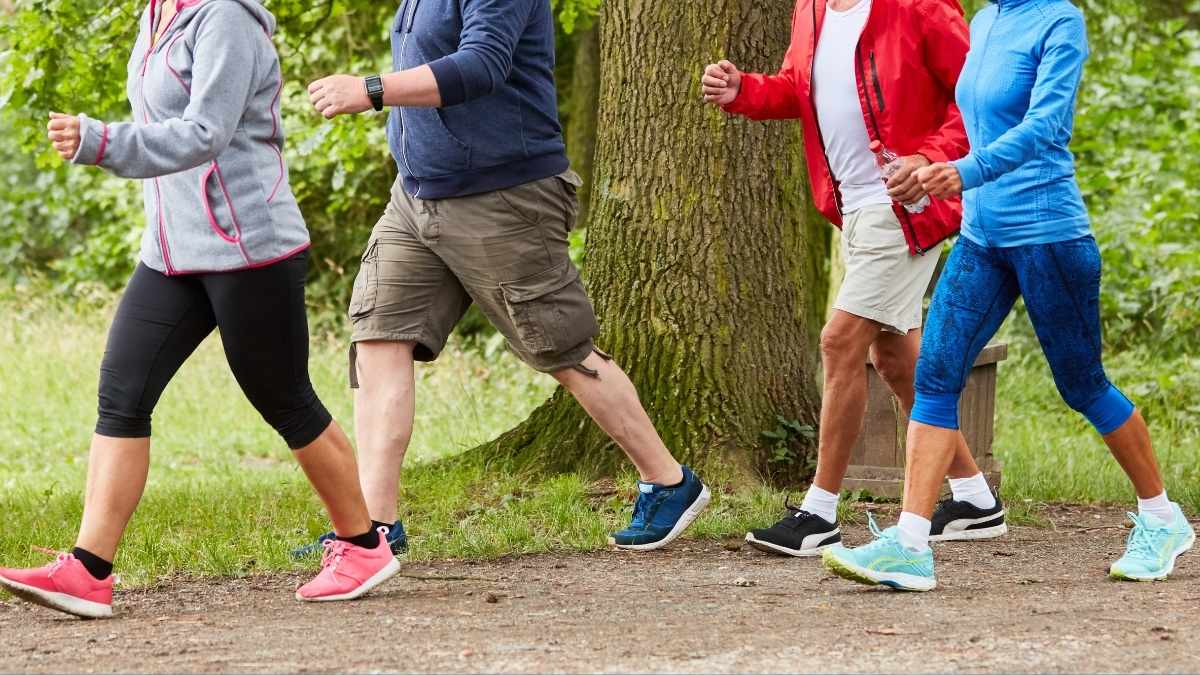
Why both matter: Strength training preserves muscles and bones, while cardio boosts your VO2 Max. Studies show higher VO2 Max directly links to longer, healthier life. Valter Longo adds an hour of daily walking on top of regular exercise: “If you’re going to the store and it’s not too far, walk.”
Minimum effective dose: Adults need at least 150 minutes of moderate activity weekly, according to 2018 guidelines. Even short home workouts—like push-ups, squats, and jumping jacks—help. Track VO2 Max with apps or fitness devices to see progress.
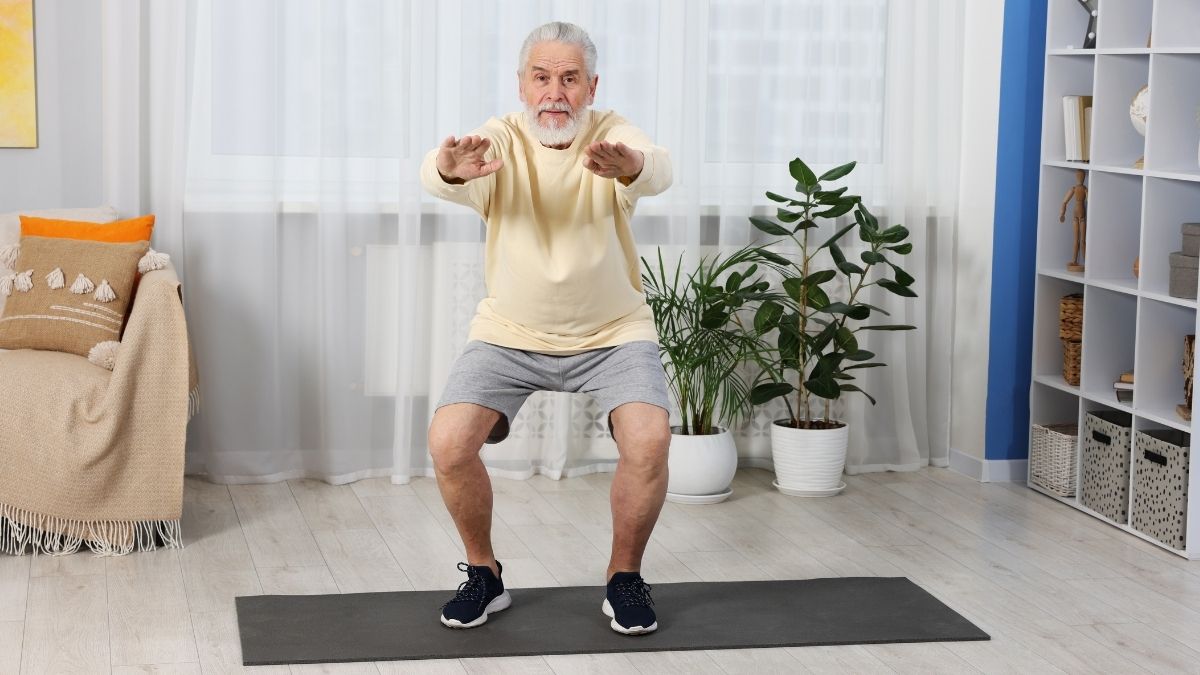
The takeaway: Anti-aging exercise isn’t about extremes. A mix of strength, cardio, and daily movement creates simple longevity workouts that keep you fit and resilient as you age.
Sleep: The Overlooked Foundation of Youth
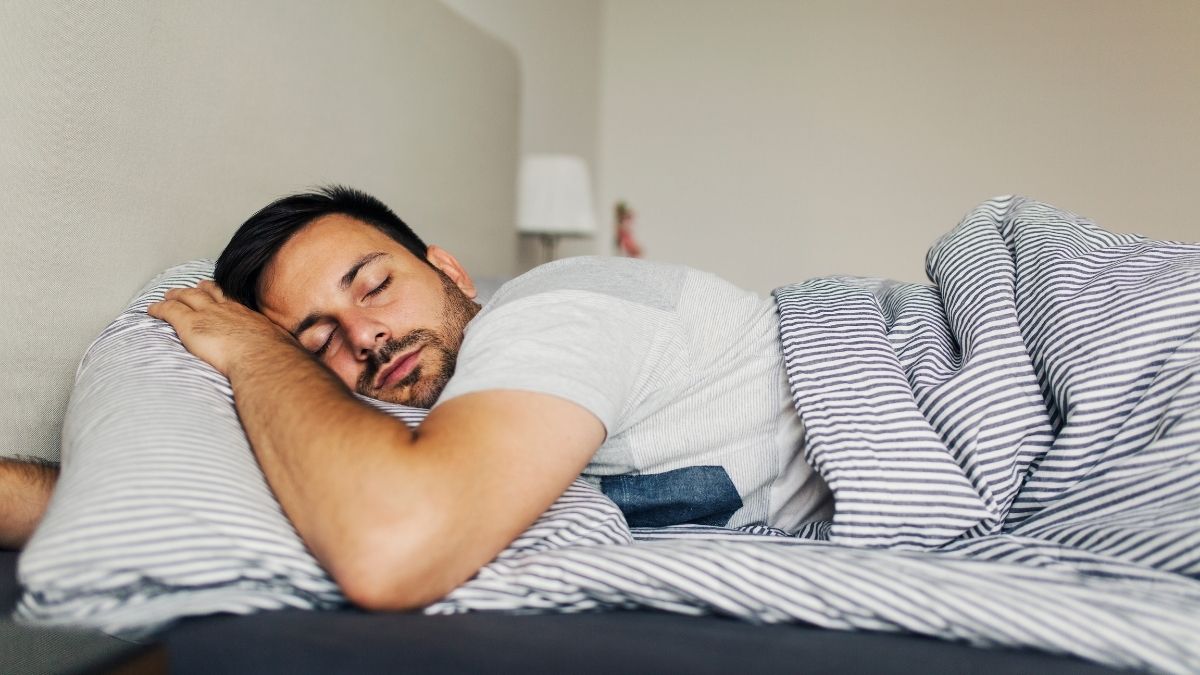
Struggling to stay energetic and healthy? Sleep may be the missing piece. Research shows people who get 7–8 hours of sleep without medications tend to live longer. Deep sleep is where your body repairs cells, boosts immunity, and helps your skin look fresh.
Dr. Eric Topol tripled his deep sleep by keeping a strict, almost ritualistic schedule. Small habits matter: keep your bedroom between 60–68°F, avoid long naps after 2 p.m., and limit naps to 20–30 minutes. Reduce screen time before bed to improve sleep quality, not just duration.
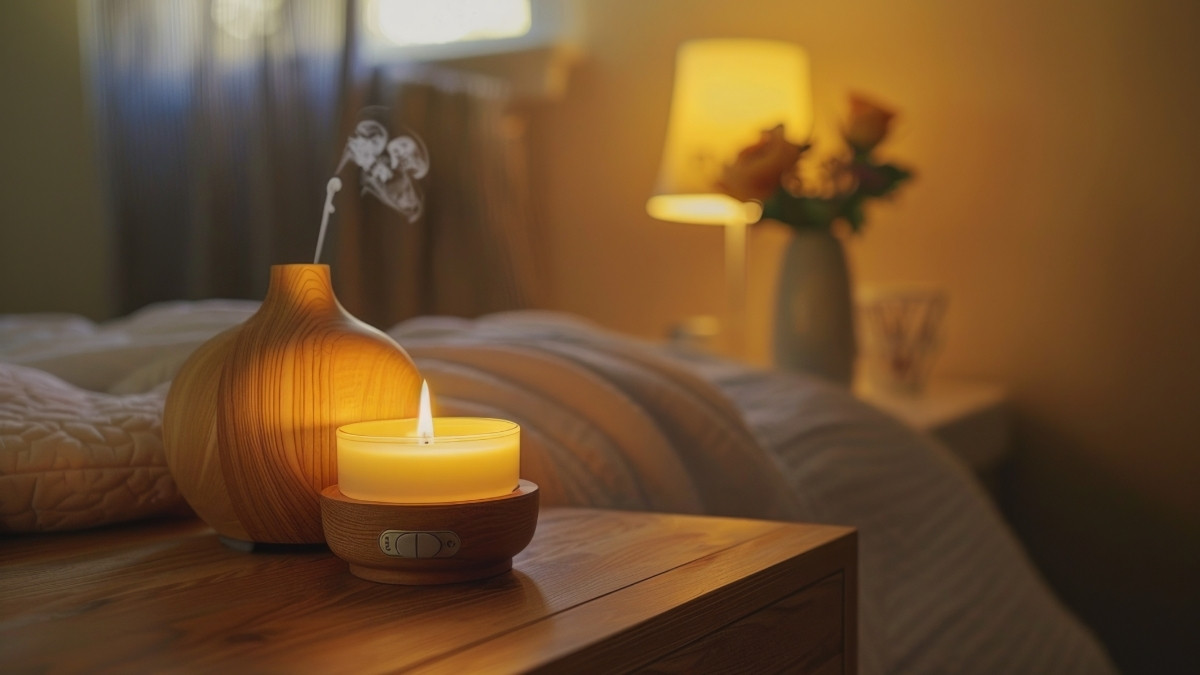
Evening routine template: dim lights, avoid caffeine late, read or stretch, and stick to a set bedtime. These anti-aging sleep habits make a big difference.
Sleep for longevity is simple: regular hours, a cool room, and deep rest help you stay young naturally while giving your body time to repair and refresh.
Face Yoga: Does It Actually Work?
Worried about wrinkles or sagging cheeks? Face yoga may help—but it’s not magic. A 2018 Northwestern study found that 20 weeks of 30-minute daily exercises improved facial fullness, especially in the cheeks. A 2025 study showed 8 weeks of intensive face yoga decreased stiffness in facial muscles, which may reduce forehead and eyebrow wrinkles.
How it works: These exercises strengthen muscles under the fat layer, giving a natural lift. Try the “O” mouth exercise, cheek lifter, forehead smoother, jawline toner, and brow raiser. Repeat each 10–15 times daily for best results.
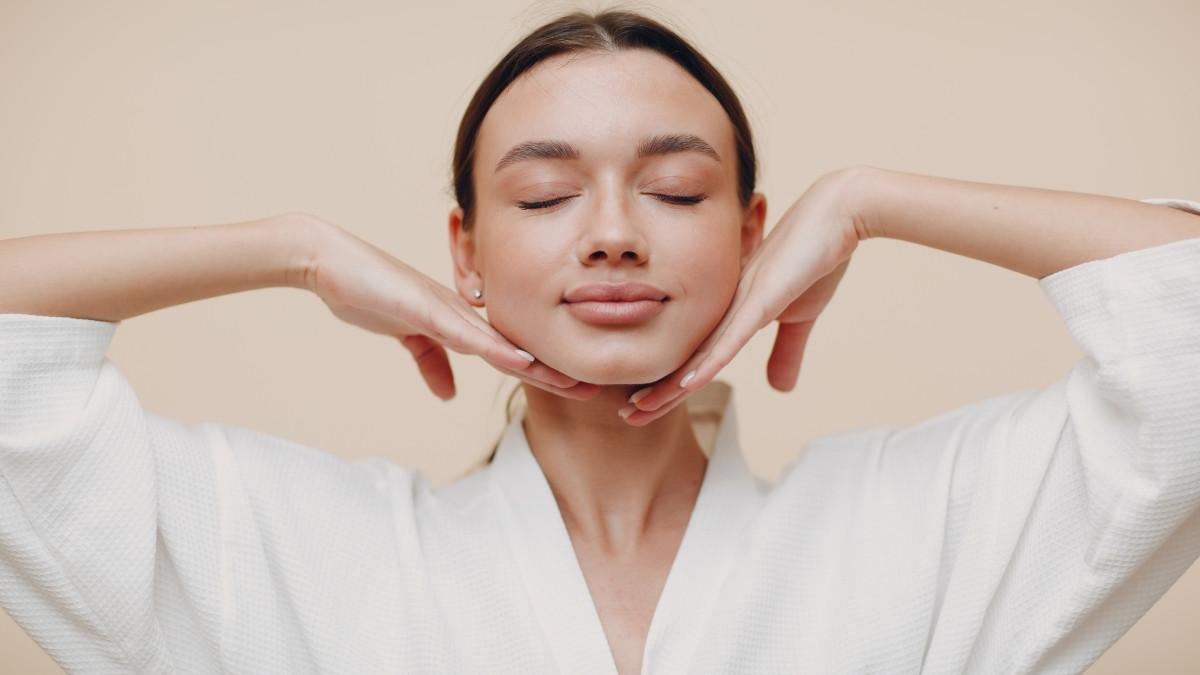
What it won’t do: Face yoga can’t erase deep wrinkles, stop aging, or replace medical treatments.
TikTok #skincareroutine has 32.8M posts and #skincaretips 15.1M, showing the trend is huge. Doing facial exercises consistently gives subtle natural facelift effects, improves muscle tone, and supports face yoga anti-aging efforts without injections or surgery.
Intermittent Fasting: The 12-Hour Minimum
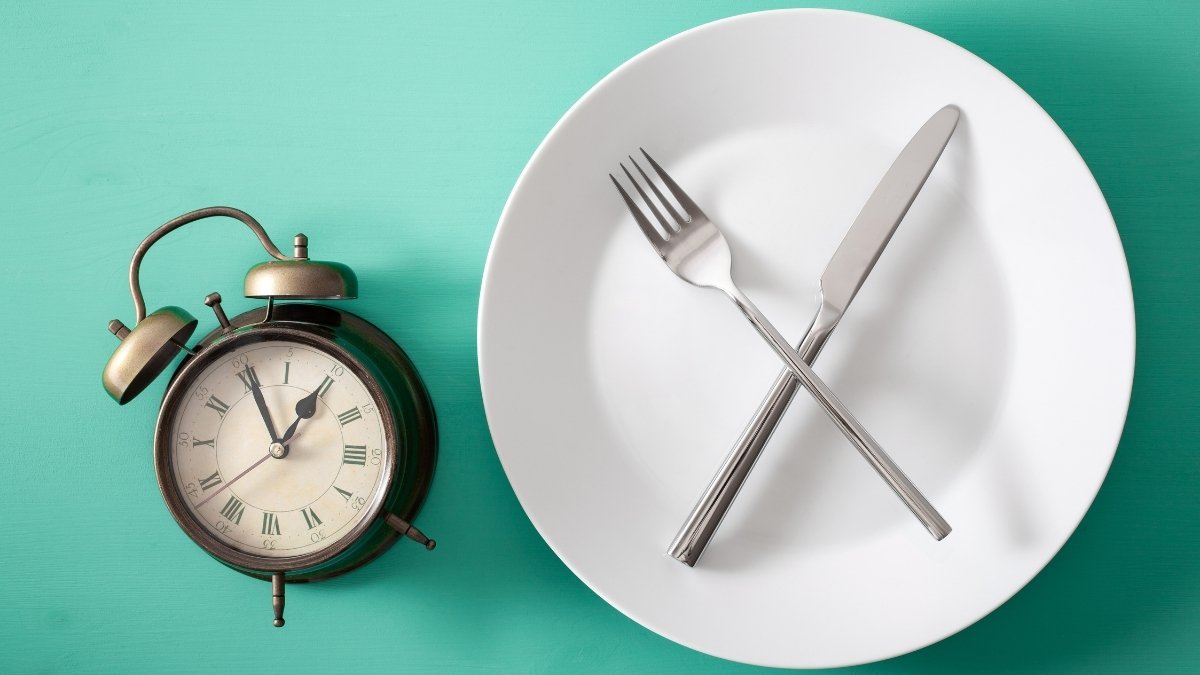
Struggling with energy or looking to support healthy aging? A simple fasting window can help. Valter Longo recommends at least 12 hours of fasting each day, for example eating between 8 a.m. and 8 p.m. or 7 a.m. and 7 p.m.
Why it works: Time-restricted eating gives your cells a chance to clean up damaged parts, supporting anti-aging and longevity.
How to start: Skip late-night snacks and keep breakfast and dinner in your chosen window. Morning beverages like black coffee, tea, or water don’t break the fast. Adjust your eating window to fit your lifestyle gradually.
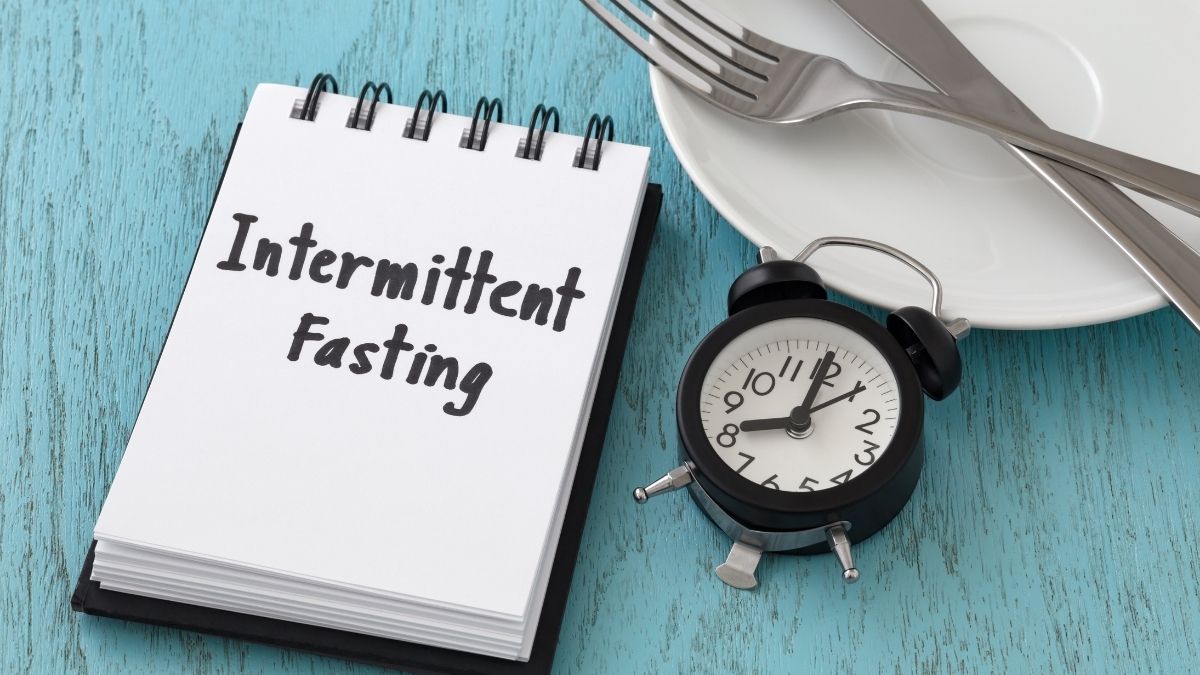
Who should avoid it: People with certain medical conditions, pregnant or breastfeeding individuals, or anyone with a history of disordered eating should skip intermittent fasting.
Intermittent fasting longevity benefits are simple: give your body 12 hours to reset, boost cellular health, and practice anti-aging fasting without extreme diets.
Social Connection: The Longevity Factor Nobody Talks About
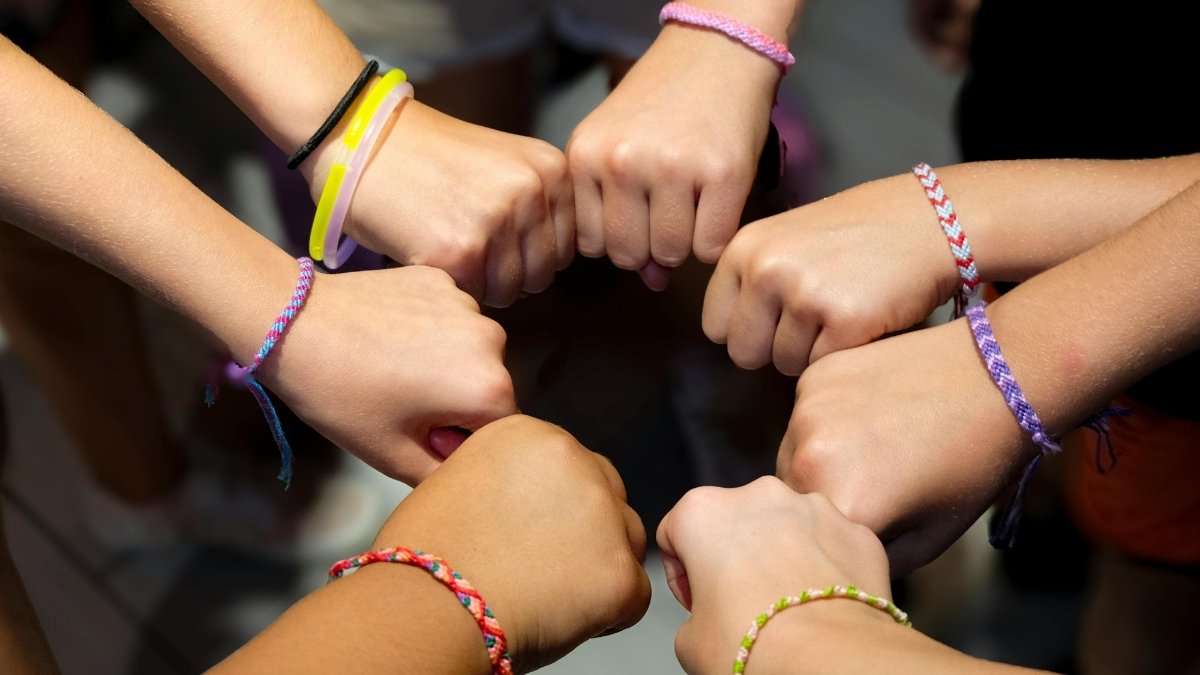
Feeling lonely can actually shorten your life. Harvard research found men with the strongest social connections lived the longest and were happiest. Another study of 28,000 people showed that more frequent social activity was linked to significantly longer survival.
Quality matters more than quantity. Deep, meaningful relationships have a bigger impact than dozens of casual acquaintances. Longevity doctors stay in touch with old friends, join community sports leagues, or participate in groups that combine exercise and socializing.
How to start: Schedule regular meet-ups, join a hobby club, or even connect digitally when in-person isn’t possible. Exercise-based community activities like group walks, yoga classes, or basketball leagues build health and relationships at the same time.

Social connection longevity is real. Strong, stay young relationships reduce stress, combat isolation, and support an anti-aging lifestyle that helps you live longer while enjoying life more.
The Skincare Basics That Actually Matter
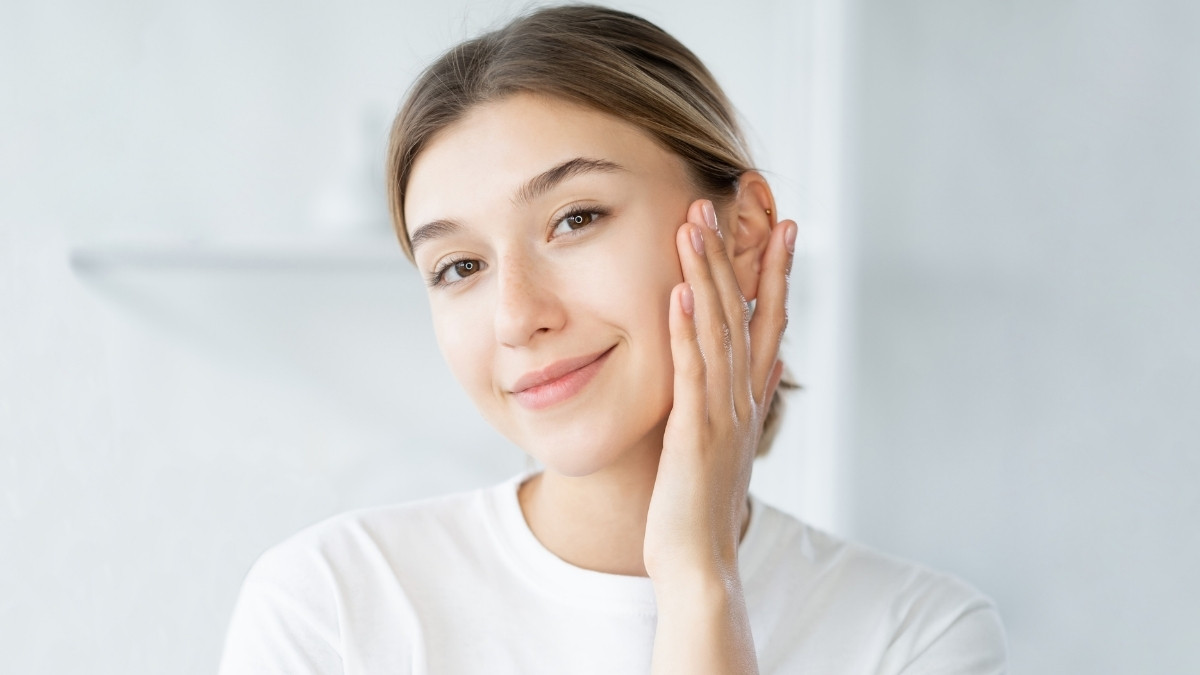
Confused by endless products and trends? Focus on the basics first. The non-negotiables are a gentle cleanser, a good moisturizer, and daily sunscreen. Factor 50 lotion is essential—even on cloudy days—because UVA and UVB rays damage skin even when it isn’t sunny.
What works: Paula’s Choice Skin Perfecting 2% BHA Liquid Exfoliant minimizes pores, and Laneige Water Bank Blue Hyaluronic Cream keeps skin hydrated. Korean skincare emphasizes consistency, healthy diet, and using warm or cold compresses before products.
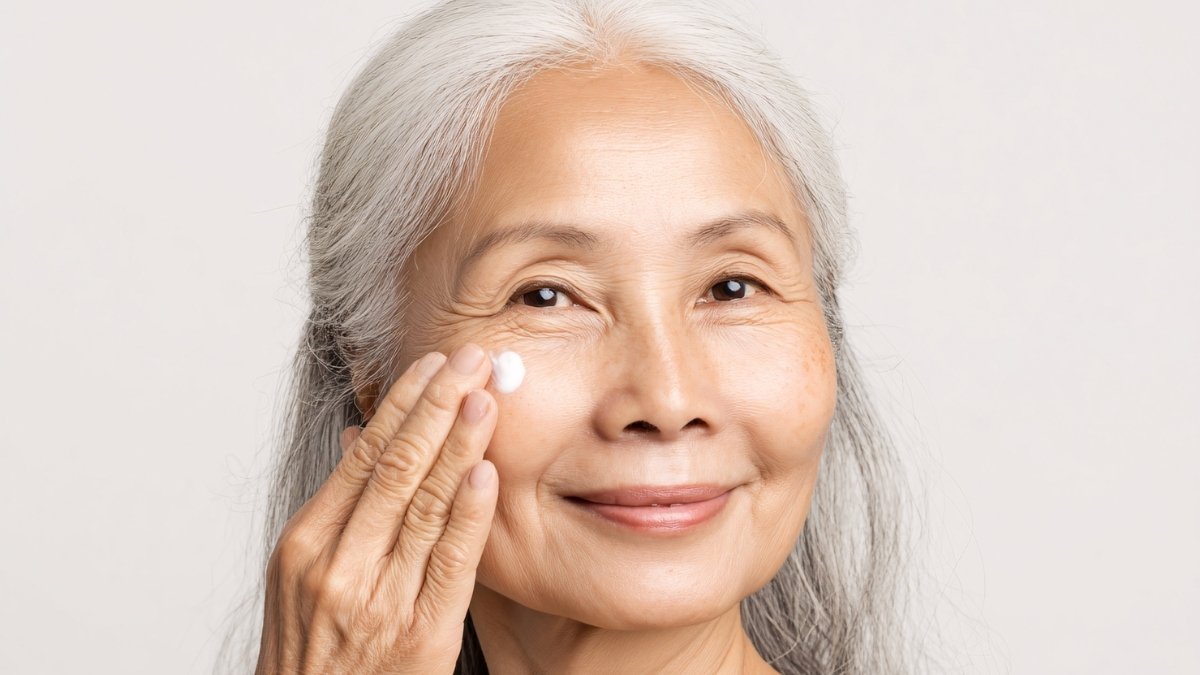
Morning vs. evening: Use light moisturizer and sunscreen in the morning; at night, focus on hydration and gentle exfoliation. Affordable alternatives can replace luxury brands without sacrificing results. Slugging with Vaseline overnight is a simple trick for hydrated, glowing skin.
Anti-aging skincare is mostly about routine, not hype. Stick to these steps consistently, and you’ll maintain youthful skin naturally while keeping your stay young skin routine simple and effective.
At the Last,
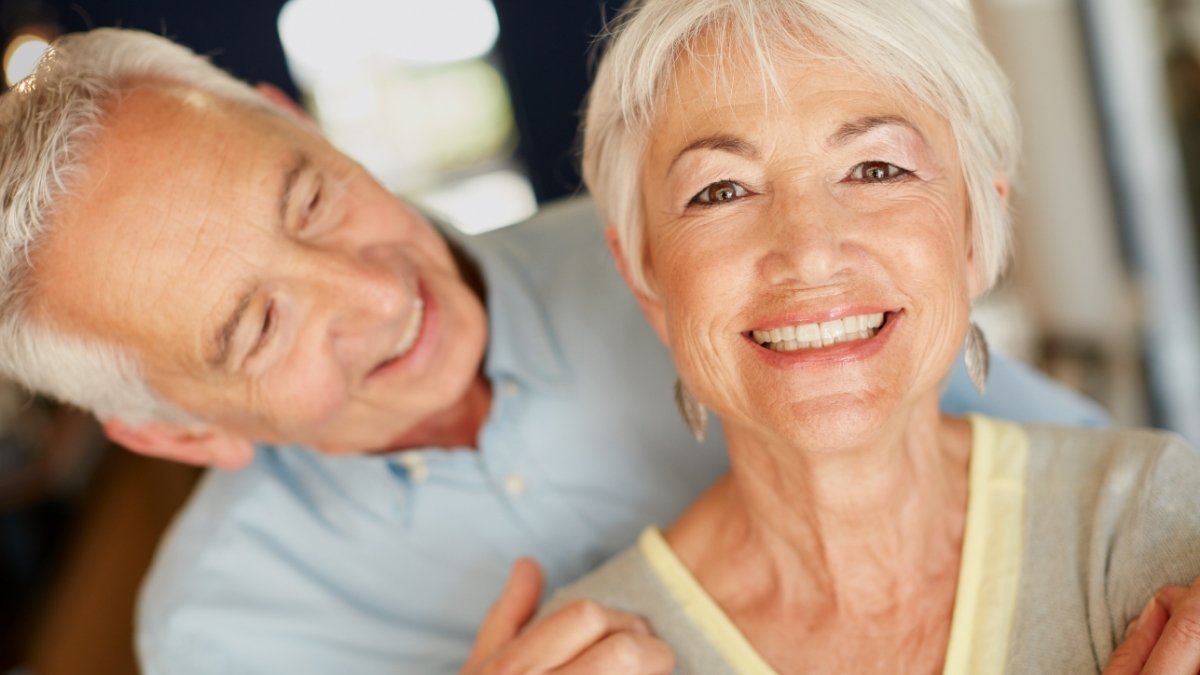
The stay young tricks that actually work in 2025 aren’t pills or fancy treatments. Science shows lifestyle habits are the real secret. Exercise combining strength and cardio,
Mediterranean diet, 7–8 hours of quality sleep, and strong social connections form the foundation. Cold plunges, face yoga, and 12-hour fasting windows are optional boosts—but consistency matters most.

Small habits compound into big results. Pick one change this week: adjust your sleep schedule, try a short cold shower, or call an old friend. Focus on what fits your life.
The best anti-aging strategies are the ones you’ll actually stick with. Start simple, stay consistent, and let daily habits build your health. Your future self will thank you for making these choices today.

